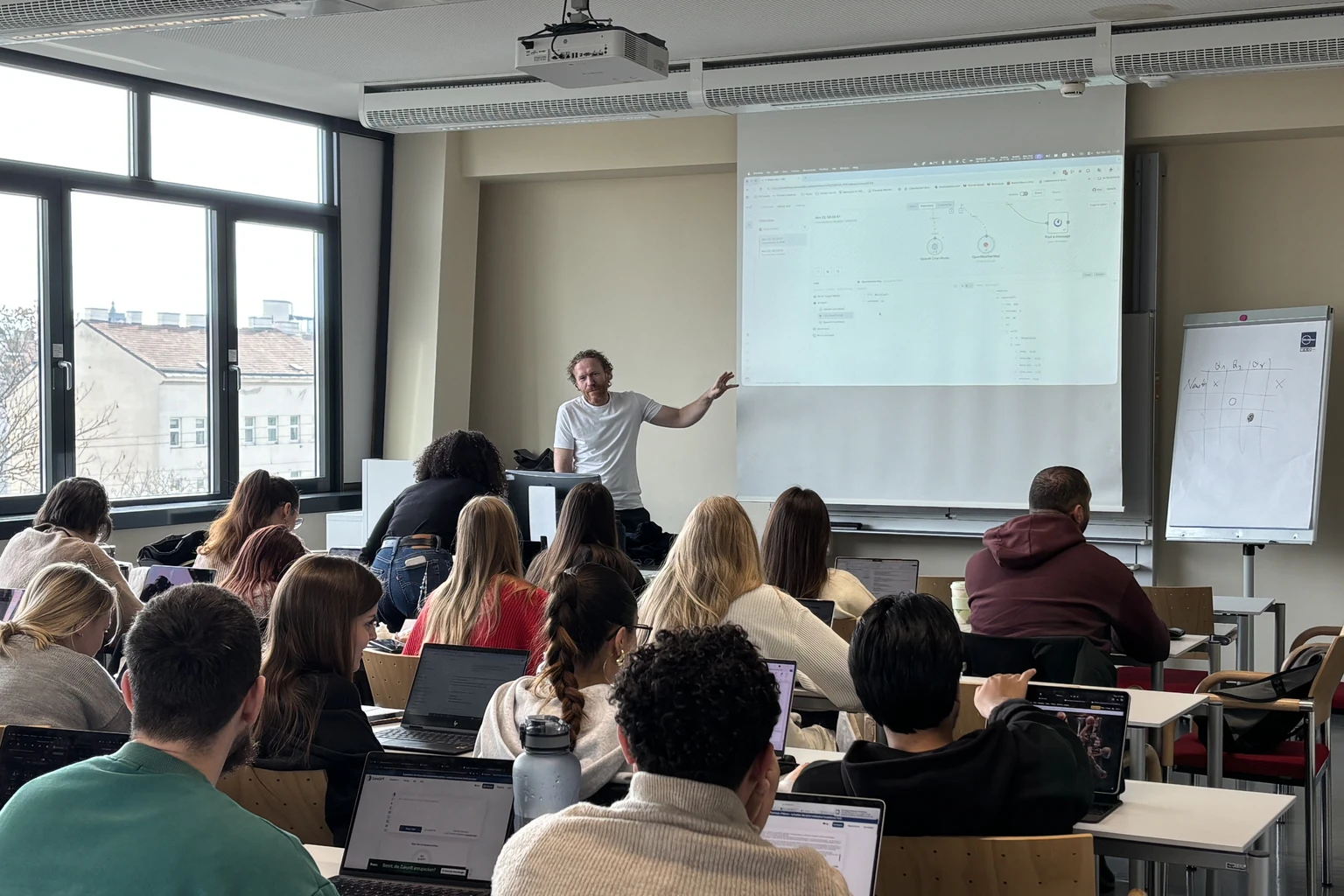
"Current State of AI" lecture at the University of Applied Sciences for Management & Communication (FHWien) in Vienna
Last Saturday I gave a lecture on the current state of AI at the University of Applied Sciences for Management & Communication (FHWien) in Vienna. The turnout was solid, with a good crowd of students showing up - including some who attended on their own time despite having had regular classes the day before. It's a good indicator that AI is becoming a topic people actually care about learning.
What We Covered
The lecture was hands-on. We started with an overview of where AI capabilities stand today, then moved into practical demonstrations.
Voice Bot
We built a voice bot together, walking through how it processes speech and responds to commands. It gave students a chance to see the mechanics behind voice interfaces they will use sonner or later. We had a good laugh when we configured the voice bot with a stereotypical Viennese accent.
AI Workflow with Push Notifications
Next, we created a workflow that integrates AI with push notifications. This covered how to automate processes and trigger notifications based on AI-processed data - practical stuff that's being used in real applications.
Vibe Coding vs. Agentic Engineering
One of the key discussions was about two different approaches to working with AI:
Vibe coding is about rapid prototyping and iteration. You use AI as a tool to quickly test ideas and explore possibilities. It's useful when you're experimenting or need to move fast. It is also great for quickly validating an idea.
Agentic engineering focuses on building autonomous systems that can handle complex tasks independently. It's more structured and aimed at production-ready solutions with detailed specs and specialised tooling.
Both approaches have their place. Vibe coding is better for exploration and quick wins. Agentic engineering is what you need for scalable, reliable systems. The students seemed to appreciate that there isn't one "right" way to approach AI development.
Student Engagement
The Q&A was good. Students asked about practical applications in their fields, career implications, and how to get started with AI development. The fact that some showed up in their free time suggests there's real interest in understanding this technology beyond just using it as a consumer.
Takeaway
The session reinforced something I've been seeing more of: people want hands-on experience with AI, not just theory. There's a gap between reading about these tools and actually building with them, and workshops like this help bridge that gap.
If you're looking to understand AI better, the best approach is still to build something with it - even if it's small.


